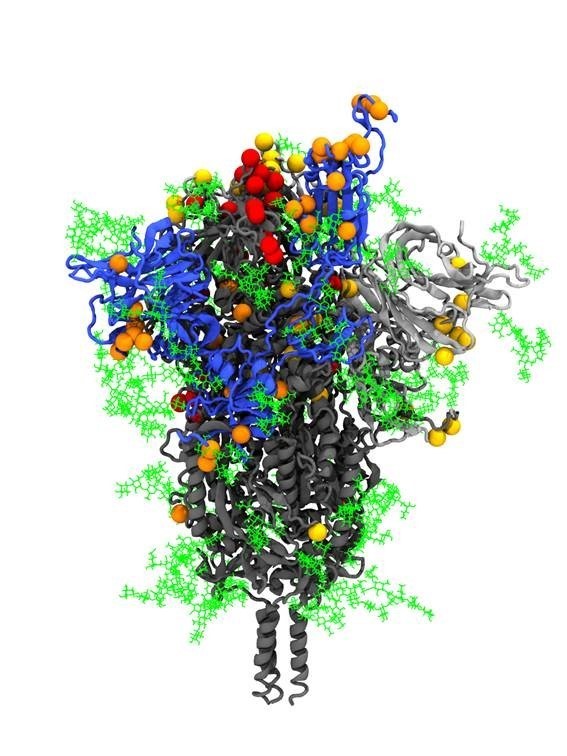We all thought some normality was starting to creep back into our lives. But a new coronavirus variant of concern, Omicron, has popped up.
We asked one of our COVID-19 experts, Special Health Advisor Dr Rob Grenfell, what we know about the Omicron variant so far, and what it might mean.
Did we expect a new variant of concern?
Rob said it’s not surprising a variant like this has arrived.
“It's expected the coronavirus will self-select for strains that will counter our efforts to control it. That means more infectious strains are likely to come out. This is because we've been trying to avoid the spread through our public health measures, like lockdowns and mask wearing," Rob said.
"We also anticipate that a new variant will emerge in the future that has some degree of resistance against the current vaccines. All of this could be reduced if we had an effective global vaccination operation.
"This pandemic will not end until we have assisted all countries in achieving high levels of vaccination," he said.
What do we know about Omicron so far?
The Omicron variant emerged in southern Africa sometime in early November.
It has a multitude of mutations, which make it a variant of concern. The Delta variant is also a variant of concern. This is because those mutations alter the spike protein. The spike protein is important to the virus because it's the way it binds to our respiratory cells to infect us. It's this protein that the vaccines target.
"Omicron has also been detected in people who have had COVID-19 previously," Rob said.
"At this stage people seem to have had mild disease from Omicron. However, the variant is now rapidly becoming the most common variant in southern Africa. And it has already seeded across many other countries in the world."
Rob said it appears this variant could be more infectious than the dominant Delta strain. But we just don’t know yet.
"The severity of this virus, as compared to Delta, is unknown at this time. Researchers will be closely following the people who contract Omicron and monitoring how unwell they get," Rob said.
“Even if it is less severe than Delta, this is a numbers game. If many people get infected, even with a low hospitalisation rate, it still means a lot of people ending up in hospital.
“However, if Omicron is less serious and becomes the dominant variant, it could be the next step in living with COVID-19.”

Will our current vaccines be effective against Omicron?
As the Omicron variant is so new, we have much to learn about how it will affect people. And whether our current vaccines will still be effective.
Rob said at this stage he expects the vaccines should prevent people from getting seriously ill from Omicron.
"Studies are kicking off to determine if antibodies generated by vaccination or infection neutralise this virus. We should hear the results of this in the next week or so," he said.
Scientists have created several platforms for vaccines against SARS-CoV-2 during this pandemic that are very effective and safe. These can be modified to adjust for variants. Already, Oxford (AstraZeneca), Pfizer and Moderna are looking at ways to modify their vaccines if necessary.
Australian authorities are reviewing the timeframes for booster shots to see whether they should be brought forward to better protect against Omicron. Until that review is finished, you can get a booster six months after your second vaccine dose.
What do we need to do now?
We still need to maintain the public health measures to restrict viral spread. This includes hand hygiene, wearing a mask, getting a test if you have symptoms, quarantining active cases and, of course, getting vaccinated.
Once we have a better understanding of how much of a concern the variant is we’ll know what impact it will likely have on the community. This includes whether more lockdowns are on the horizon. If it is more infectious or severe, we may need to use all the public health tools necessary to reduce the spread.
While there’s still a lot to learn about Omicron, scientists have been working all through the pandemic to develop additional tools in our line of defence against the pandemic that will continue to be useful.
For example, our scientists working with Qantas and the University of Queensland showed wastewater testing on international flights can detect signals of the virus before passengers even show symptoms. This tool will provide valuable data for public health agencies in Australia.
